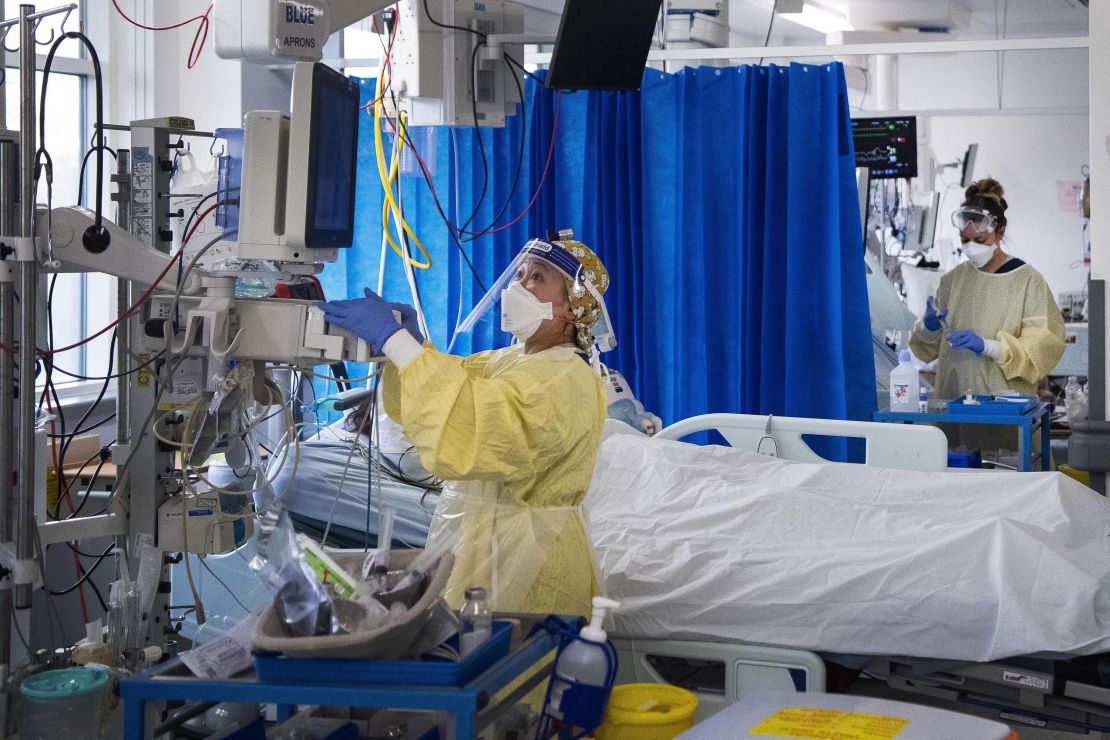Europe slid further into crisis Friday as multiple countries faced overwhelming numbers of coronavirus cases and deaths.
The UK reported 1,325 coronavirus-related fatalities on Friday, its highest ever daily increase in deaths. The country also recorded another 68,053 infections, as health officials face a deadly start to 2021.
In the capital, London’s mayor declared a “major incident” on Friday, warning that hospitals in the city were close to being overrun.
“The situation in London is now critical with the spread of the virus out of control,” Mayor Sadiq Khan said in a statement.
“The number of cases in London has increased rapidly with more than a third more patients being treated in our hospitals now compared to the peak of the pandemic last April.
“We are declaring a major incident because the threat this virus poses to our city is at crisis point,” Khan added. “If we do not take immediate action now, our [National Health Service] could be overwhelmed and more people will die.”
The statement from the mayor’s office said that there were currently 7,034 people in London hospitals with Covid-19, a 35% increase compared to the peak of the pandemic in April.
UK Health Minister Matt Hancock said Thursday that the government is placing “extra resources” in London and other parts of England where the NHS is under the “most significant pressure.”
British health officials are also scrambling to cope with the new variant of the virus that was first detected in the country, as it spreads through the public.
This strain appears to spread more easily than others but there’s no evidence that it’s any more deadly or causes more severe disease.
Germany also reported its highest daily death toll of the pandemic with 1,188 fatalities recorded in the past 24 hours. The previous record was 1,129 on December 30.
The country, which was praised for its handling of the first wave of the pandemic, is currently under a stringent national lockdown, which has been extended until January 31.

The coronavirus crisis is also deepening in Ireland, where health officials said they were deeply concerned about a sharp spike in cases, with 6,521 infections recorded on Thursday alone.
Tony Holohan, the country’s chief medical officer, said that more than 44,000 new infections had been recorded in Ireland over the past two weeks, according to RTE – roughly a third of all confirmed cases since the start of the pandemic.
Holohan said the new UK variant had contributed to the surge.
Ireland further tightened its lockdown measures on Wednesday, closing construction sites and schools across the country. An exception has been made for final-year students due to sit exams in school.
“We are in a battle against a deadly and ever-changing virus,” Irish leader Micheál Martin said Wednesday on Twitter. “The lockdown that we are introducing today is designed to reflect that stark and simple reality.”
WHO calls for stricter measures
As governments scramble to vaccinate people and cope with the winter peak, the World Health Organization (WHO) called for more intensified measures to deal with the UK strain.
“With increased transmissibility and similar disease severity, the variant does … raise alarm: without increased control to slow its spread, there will be an increased impact on already stressed and pressurized health facilities,” WHO Europe director Hans Kluge said Thursday.
“This is an alarming situation, which means that for a short period of time we need to do more than we have done and to intensify the public health and social measures to be certain we can flatten the steep vertical line in some countries,” Kluge added.
Kluge also urged countries “to mitigate this burden by doing all they can to reduce transmission and increase vigilance to identify any new variants.”
The UK variant has now been detected in 22 countries across the WHO European region.
CNN’s Sugam Pokharel and Arnaud Siad contributed to this article.





